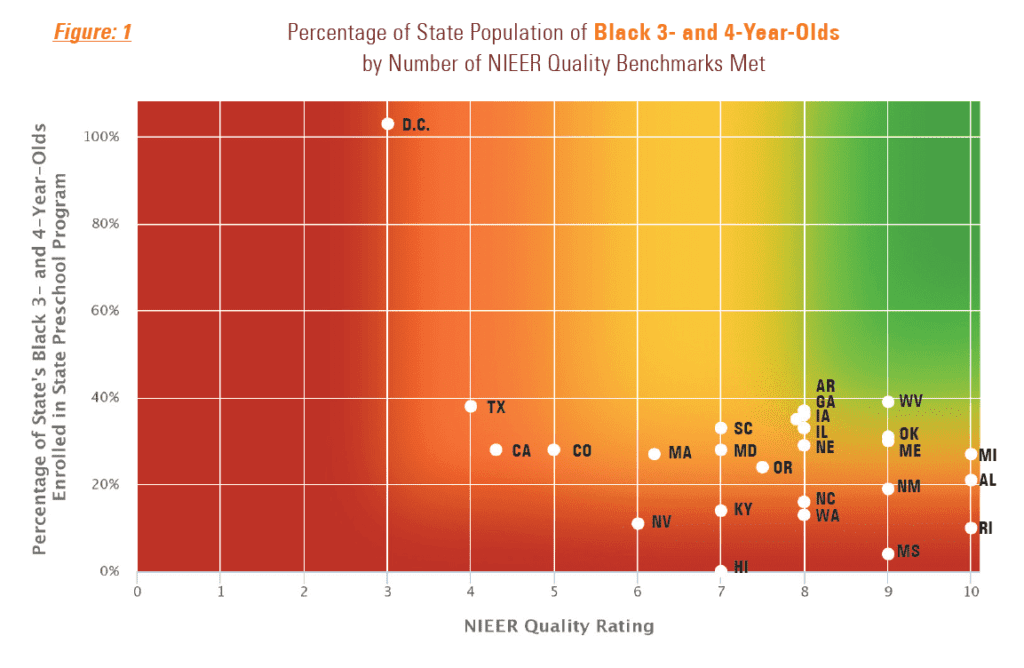Young Learners, Missed Opportunities
High-quality early childhood education (ECE) is important to the rapid development that happens in the first five years of…

High-quality early childhood education (ECE) is important to the rapid development that happens in the first five years of a child’s life and has long-lasting benefits well into adulthood. But many children, largely Black and Latino, are not given access to nor are being served by high-quality, state-funded ECE programs, according to our first-of-its-kind analysis. In Young Learners, Missed Opportunities: Ensuring That Black and Latino Children Have Access to High-Quality State-Funded Preschool, we sought to answer two questions:
Out of the 26 states analyzed, not one provided both high-quality and high-access ECE for 3- and 4-year-old Black and Latino children during the 2017-2018 school year.

When exploring both access and quality, Ed Trust found:
“Our data is devastating. No state provides the two essential elements for a strong early start for our nation’s Black and Latino children — quality and access. Despite overwhelming research on the value of high-quality preschool, states continue to willfully neglect our youngest students of color.”
– Carrie Gillispie, Ed.D,, senior analyst for P-12 policy
Of the 26 states analyzed:
The report found that, although well-intentioned, some states with “universal” programs lack sufficient program quality. For example, DC’s program reaches nearly all of its Black 3- and 4-year-olds and 61% of its Latino 3- and 4-year-olds, making it particularly strong on access. But it was rated only 3 out of 10 for quality. On the other hand, states with high quality often serve very few Black and Latino children. For instance, Mississippi’s program was rated a 9 out of 10 for quality, but served only 1% of its Latino children and 4% of its Black children.
Georgia, Oklahoma, and West Virginia, however, proved to be bright spots with relatively high access and high quality for Black and Latino 4-year-olds.
“Over and over again, we see children who deserve these important learning opportunities the most are being shut out due to systemic barriers, which can have a cascading effect throughout their K-12 education and beyond. State leaders must work to ensure that, among other key learning opportunities, their states’ 3- and 4-year-old Black and Latino children have access to high-quality ECE as it provides a solid foundation for prolonged academic and personal achievement.”
– Heather Rieman, director of P-12 policy.
To improve access for Black and Latino children, Ed Trust recommends state leaders:
To improve quality for all children, and especially for Black and Latino children, Ed Trust recommends state leaders:
“The first years of a child’s life are critical to the socio-emotional and educational success of students because they provide the foundation for all subsequent learning and development. Black children deserve accessible high-quality early childhood education, yet too many are shut out. States must work to provide both quality and access.”
– Tobeka G. Green, president and CEO of the National Black Child Development Institute.